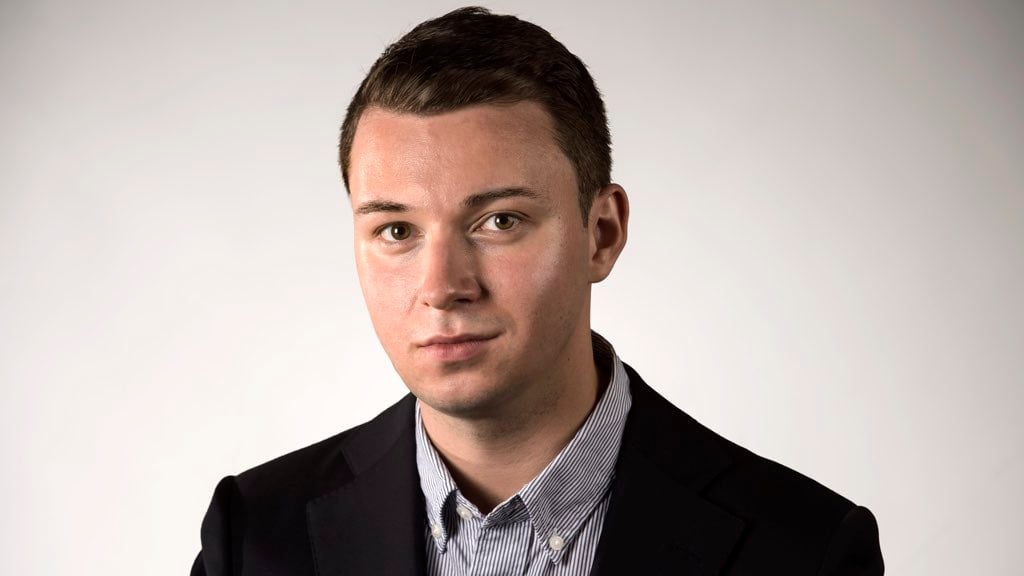The Washington Post didn’t just stumble upon the urban-rural divide in the United States last November after Donald Trump‘s surprise victory over Hillary Clinton. Its “America desk” began looking at rising mortality rates among white Americans, women in particular, in the “Unnatural Causes” series that started rolling out the previous spring, and its police-shootings database grew out of coverage of the crisis in Ferguson, Missouri.
But Jose DelReal’s job is new. The Post recently named the 26-year-old reporter to a newly created beat on the America desk: exploring “the divide between rural and urban America.” The Post‘s announcement says he’ll be looking at the “remarkable reversal of fortune” in which “the nation’s largest cities have become magnets for money, innovation and young professionals, while its small towns and farms have become poorer, older, sicker and more resentful of urban elites.”
DelReal is from Anchorage, Alaska–a city, yes, but one a bit north of most elitist hotbeds. In high school, he edited Perfect World, the teen-focused section of the Anchorage Daily News. There, he says, he “saw a lot of layoffs and the sort of slow decline of the newsroom.” The experience made him and his parents, who immigrated from central Mexico, nervous about a career in journalism, but after studying US history and philosophy at Harvard (“social studies” in the vernacular there) he took the plunge anyway.
DelReal came to the Post in 2014, after an editorial fellowship at Politico. The Post was in the first bloom of expanding of its ambitions under new owner Jeff Bezos, and DelReal, who was covering breaking news from the politics desk, says he “wasn’t shy” about letting his boss Steven Ginsberg know that he would be happier working outside the building. Trips to New Hampshire followed, as well as stories about Rand Paul, Mike Huckabee, and Ben Carson, among others, then a full-time assignment covering Carson until his candidacy dissolved. Last January he joined Jenna Johnson covering another long shot candidate, Donald Trump. “By that point it was clear that Donald Trump was the frontrunner, but this was back when nobody believed those polls could be taken seriously,” DelReal says.
We know what happened next. DelReal says the whole experience was “wild,” and his reporting from the trail backs that up–including the time security guards kept him out of a Pence rally. DelReal remembers it fondly, especially the chances it gave him to get acquainted with the lower 48. “Personally,” DelReal says, it was “cool to see so much of the country and get to talk to so many types of people.”
In his new job, he’ll get to do a lot of that. Deputy National Editor Lori Montgomery says the idea for DelReal‘s new beat sprang from the “Unnatural Causes” series, the emergence of anger as a political force (his colleague Mary Jordan is tasked with reporting the grievance beat, perhaps the coolest-sounding journalism job in the country, on the now considerably up-staffed America desk), and her discussions with National desk mainstay Joel Achenbach. “We started to think about how different the places we grew up were from the places where we live now,” says Montgomery, who grew up in rural Butler County, Pennsylvania. DelReal is “a very talented young guy; he has a lot of skills including fluent Spanish.”
Both Montgomery and DelReal talked about themes with great impact on both the urban and rural poor–poverty, life expectancy, educational opportunities. He’s been boning up on urban and rural policy–“I do want to explain to people how decisions in Washington organize people’s lives and the way they live”–and compiling a list if stories he wants to do for Josh White, who will lead the America desk alongside a deputy, Simone Sebastian. Those stories will take all sorts of forms, says Montgomery, from long dives to quick blog posts–all members of the America desk are expected to break news on the Post Nation blog.
DelReal promises “narrowly focused” stories about people that will help illustrate the themes he’s working toward understanding. During the campaign, he liked to get away from rallies whenever possible and wander the aisles of Walmart, trying to find people who’d talk to him. Many told him to get lost, but enough told him about their lives–what they and their friends did for work, how their towns had changed in the past two decades. He wasn’t collecting quotes for stories, just listening.
“There’s this really unfortunate trend in journalism where the only reason you talk to people is to get a quote from them, and I think that’s bullshit,” DelReal says. “We should talk to people to understand their lives.”



















